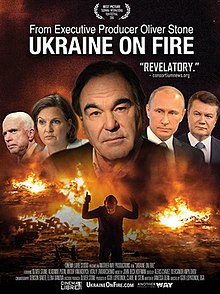
The Orange Revolution was a series of protests, that lead to political upheaval in Ukraine from late November 2004 to January 2005. It gained momentum primarily due to the initiative of the general population, sparked by the aftermath of the 2004 Ukrainian presidential election run-off which was claimed to be marred by massive corruption, voter intimidation and electoral fraud. Kyiv, the Ukrainian capital, was the focal point of the movement's campaign of civil resistance, with thousands of protesters demonstrating daily. Nationwide, this was highlighted by a series of acts of civil disobedience, sit-ins, and general strikes organized by the opposition movement.

Propaganda in the Soviet Union was the practice of state-directed communication aimed at promoting class conflict, proletarian internationalism, the goals of the Communist Party of the Soviet Union, and the party itself.

Vladimir Rudolfovich Solovyov is a Russian TV presenter and propagandist. He has been an anchor on the television show Evening with Vladimir Solovyov on Russia-1 since 2012.
Russian web brigades, also called Russian trolls, Russian bots, Kremlinbots, or Kremlin trolls are state-sponsored anonymous Internet political commentators and trolls linked to the Government of Russia. Participants report that they are organized into teams and groups of commentators that participate in Russian and international political blogs and Internet forums using sockpuppets, social bots, and large-scale orchestrated trolling and disinformation campaigns to promote pro-Vladimir Putin and pro-Russian propaganda.
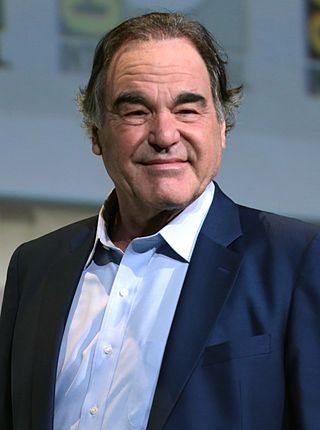
William Oliver Stone is an American film director, producer, and screenwriter. Stone is known as a controversial but acclaimed director, tackling subjects ranging from the Vietnam war, and American politics to musical biopics and crime dramas. He has received numerous accolades including four Academy Awards, a BAFTA Award, a Primetime Emmy Award, and five Golden Globe Awards.
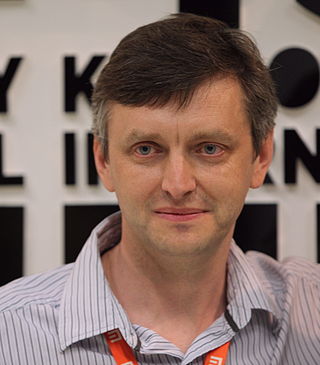
Sergei Vladimirovich Loznitsa is a Ukrainian director of Belarusian origin known for his documentary as well as dramatic films.

Euromaidan, or the Maidan Uprising, was a wave of demonstrations and civil unrest in Ukraine, which began on 21 November 2013 with large protests in Maidan Nezalezhnosti in Kyiv. The protests were sparked by President Viktor Yanukovych's sudden decision not to sign the European Union–Ukraine Association Agreement, instead choosing closer ties to Russia and the Eurasian Economic Union. Ukraine's parliament had overwhelmingly approved of finalizing the Agreement with the EU, but Russia had put pressure on Ukraine to reject it. The scope of the protests widened, with calls for the resignation of Yanukovych and the Azarov government. Protesters opposed what they saw as widespread government corruption, abuse of power, human rights violations, and the influence of oligarchs. Transparency International named Yanukovych as the top example of corruption in the world. The violent dispersal of protesters on 30 November caused further anger. Euromaidan led to the 2014 Revolution of Dignity.
Below are the domestic responses to the Euromaidan. Euromaidan was a wave of demonstrations and civil unrest in Ukraine that began on the night of 21 November 2013 after the Ukrainian government suspended preparations for signing an Association Agreement and Deep and Comprehensive Free Trade Agreement with the European Union.
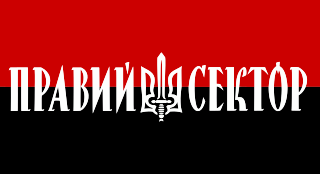
Right Sector is a loosely defined coalition of right-wing to far-right Ukrainian nationalist organizations. It originated in November 2013 as a right-wing, paramilitary confederation of several ultranationalist organizations at the Euromaidan revolt in Kyiv, where its street fighters participated in clashes with riot police. The coalition became a political party on 22 March 2014, at which time it claimed to have roughly 10,000 members. Founding groups included the Trident (Tryzub), led by Dmytro Yarosh and Andriy Tarasenko, and the Ukrainian National Assembly–Ukrainian National Self-Defense (UNA–UNSO), a political and paramilitary organization. Other founding groups included the Social-National Assembly, and its Patriot of Ukraine paramilitary wing, White Hammer, and the Sich Battalion. White Hammer was expelled in March 2014, and Patriot of Ukraine left the organization, along with many UNA–UNSO members, in the following months.
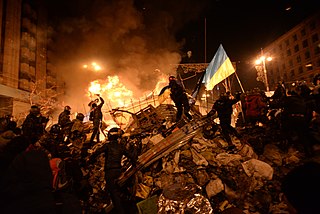
The Revolution of Dignity, also known as the Maidan Revolution or the Ukrainian Revolution, took place in Ukraine in February 2014 at the end of the Euromaidan protests, when deadly clashes between protesters and state forces in the capital Kyiv culminated in the ousting of elected President Viktor Yanukovych, the return to the 2004 Constitution of Ukraine, and the outbreak of the 2014 Russo-Ukrainian War.
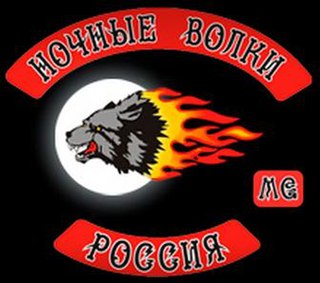
The Night Wolves or Night Wolves Motorcycle Club is a Russian motorcycle club that was founded around the Moscow area in 1989. It holds an international status with at least 45 chapters world-wide.

The Russo-Ukrainian War is an ongoing international conflict between Russia and Ukraine, which began in February 2014. Following Ukraine's Revolution of Dignity, Russia annexed Crimea from Ukraine and supported pro-Russian separatists fighting the Ukrainian military in the Donbas war. The first eight years of conflict also included naval incidents, cyberwarfare, and heightened political tensions. In February 2022, Russia launched a full-scale invasion of Ukraine and began occupying more of the country.

Ukraine emerged as the concept of a nation, and the Ukrainians as a nationality, with the Ukrainian National Revival which began in the late 18th and early 19th century. The first wave of national revival is traditionally connected with the publication of the first part of "Eneyida" by Ivan Kotlyarevsky (1798). In 1846, in Moscow the "Istoriya Rusov ili Maloi Rossii" was published. During the Spring of Nations, in 1848 in Lemberg (Lviv) the Supreme Ruthenian Council was created which declared that Galician Ruthenians were part of the bigger Ukrainian nation. The council adopted the yellow and blue flag, the current Ukrainian flag.
Media portrayals of the Russo-Ukrainian War, including skirmishes in eastern Donbas and the 2014 Ukrainian revolution after the Euromaidan protests, the subsequent 2014 annexation of Crimea, incursions into Donbas, and the full-scale invasion of Ukraine in 2022, have differed widely between Ukrainian, Western and Russian media. Russian, Ukrainian, and Western media have all, to various degrees, been accused of propagandizing, and of waging an information war.

Alexander Sergeyevich Zaldastanov, is a Russian motorcycle club leader, political activist, and former physician. He is the leader of the Night Wolves, Russia's largest motorcycle club. He was awarded the Medal "For the Return of Crimea" by President of the Russian Federation Vladimir Putin for his actions in "Helping Crimeans to self-determine".

Winter on Fire: Ukraine's Fight for Freedom is a 2015 documentary film directed by Evgeny Afineevsky, written by Den Tolmor about the Euromaidan protests in Ukraine from 21 November 2013 to 23 February 2014.

Mikhail Viktorovich Zygar is a Russian born journalist, writer and filmmaker, and the founding editor-in-chief of Russian news channel TV Rain (2010–2015). Under Zygar's leadership, TV Rain provided an alternative to Kremlin-controlled federal TV channels by focusing on news content and giving a platform to opposition voices. The channel's coverage of politically sensitive issues, like the Moscow street protests in 2011 and 2012 as well as the conflict in Ukraine, has been dramatically different from the official coverage by Russia's national television stations. Zygar is also the author of the book All the Kremlin's Men (2017), the history of Putin's Russia, based on interviews with Russian politicians from Putin's inner circle.

The Russian information war against Ukraine was articulated by Russian government as a part of Gerasimov doctrine. They believed that Western governments were instigating color revolutions in former Soviet states which posed a threat to Russia.

The Freedom of Russia Legion, also called the Free Russia Legion, is a Ukrainian-based paramilitary unit of Russian citizens, which opposes the Russian regime of Vladimir Putin and its invasion of Ukraine. It was formed in March 2022 and is reportedly part of Ukraine's International Legion. It consists of defectors from the Russian Armed Forces, and other Russian volunteers, some of whom had emigrated to Ukraine. It is one of several such units participating in the Russo-Ukrainian War on behalf of Ukraine.

Igor Lopatonok is a film producer, holding also US and Russian passports. He is known for his work in colorization and 3D conversion and as a documentary filmmaker.
